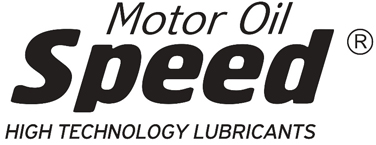COMPANY
Quality Policy

Our company’s Policy is the cornerstone for the achievement of its objectives. the Quality, Environment, Health & Safety Management System is based on it. Safety of our Employees.
Speed Motor Oil – A. BADAS S.A. produces lubricant products according to the needs of the customer and the obligations arising from the agreements concluded, without in any case violating the terms of the Law and regulations, as imposed by Greek and International Legislation.
The aim of our Company is:
a) the provision of high quality products in order to fully satisfy customer requirements while maintaining a high level of efficiency.
b) Respect for people and the protection of the environment and ensuring good working conditions for all employees.
In order to achieve our goal, the company has staff with long experience and high level training, excellent organization and state-of- the-art machinery and instruments.
All executives are responsible for ensuring the company’s commitment, while making a continuous effort to improve the products and services provided.
In view of the above, the Management may modify either this policy or the Integrated Management System, with the aim of continuously improving the Management System.
The above Quality Policy is available to interested parties and is known and applied by all Speed Motor Oil – A. BADAS S.A. personnel.
Control of our lubricant products
Before our products reach the consumer, they are strictly controlled in a fully equipped chemistry laboratory, with the latest generation of equipment. The testing is carried out by experienced scientific staff, who carry out a multitude of daily analyses on finished products and raw materials. The control of products, as well as the entire production process of the company, is carried out in accordance with the requirements of the ISO 9001:2015 quality assurance system and ensures stability in product quality.
Purity, homogeneity, clarity, absence of foreign bodies and suspended particles.
Based on the viscosity at the two temperatures, the viscosity index (V.I.) is calculated, which serves as an indication of the change in viscosity during temperature changes. This indirectly gives the SAE number of the lubricant.
ASTM D445, D2270
Or the density of the lubricant in relation to that of the water. It provides another piece of information about the quality of products and raw materials.
ASTM D1298.
The pour point is an indicator of the lowest temperature at which an oil can maintain its fluidity to be functional and provide engine protection.
ASTM D97
Determining the performance of internal combustion engine lubricants at low temperatures by simulating the “cold cranking” condition – i.e. measuring the starting ability in a cold engine with high shear stress.
ASTM D5293
Measurement of the alkalinity of the lubricant, a property which is able to compensate for the action of acids formed when the lubricant is heated. Alkalinity provides protection against oxidation and wear that can be caused by the extensive presence of the acids produced in the engine.
ASTM D2896
High engine operating temperatures can evaporate some of the oil, leading to high fuel consumption and changes in the properties of the lubricant.
ASTM D5800
Moisture causes oxidation and destruction of the lubricant and this leads to reduced protection, corrosion and engine wear.
An important method of checking the composition of products for the correct quality and quantity of additives in each product.
The ability of a lubricating oil to separate from water and resist emulsification is an important performance characteristic for applications where there is a potential for water contamination of the lubricant under turbulent conditions.
ASTM D1401
etermining the foaming of lubricating oils is important in applications involving turbulence, high gear speed or high pumping intensity, which may cause insufficient lubrication, overflow and oxidation.
ASTM D892
This is the lowest temperature at which the lubricant releases flammable volatile substances to ignite with a small flash point. It is of particular importance for the safe use of products.
ASTM D92 & D93
The amount of residue that may remain in the engine and cause contamination of the pistons after consumption of the oil is calculated.
ASTM D893
A high amount of sulphated ash can cause premature clogging of the particulate filter in diesel engines, while a low sulphated ash content will lead to a reduced ability to balance the acids generated during combustion. In this case very low sulphur fuels are required.
ASTM D874
The low temperature and low shear viscosity of automatic transmission fluids, valve oils, and hydraulic oils are of great importance for the proper operation of mechanical equipment, since they play a role in the performance of the lubricant, but also in the reduction of greenhouse gas emissions. The measurement of specific lubricant parameters, at low temperatures, is used to determine their acceptability in terms of quality.
ASTM D2983
We are able to provide our customers with every product with the best possible quality and stability. We keep a full stock of samples, which are subject to the necessary quality control and there is traceability of each batch of products, from the start of production to their delivery to each of our customers. All processes are in accordance with the strict regulations of an annually audited ISO 9001:2008 quality system, and with our need for an efficient, functional and quality production process.
We can recommend you the most reliable & economical solution in every lubrication application!
